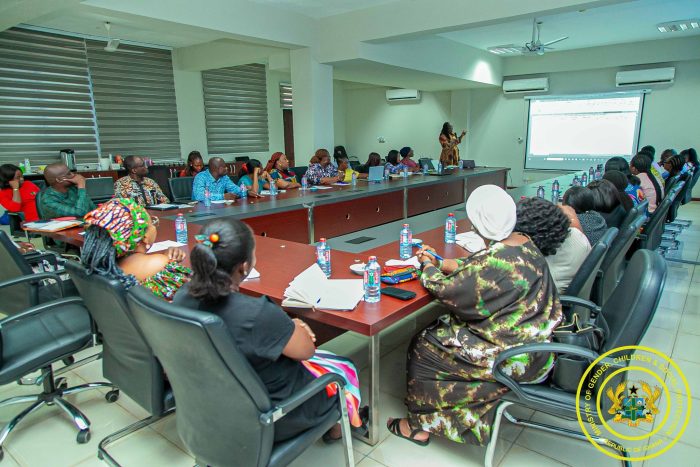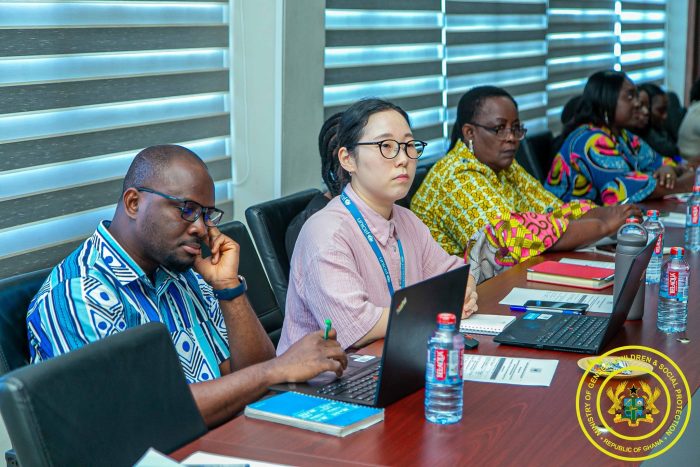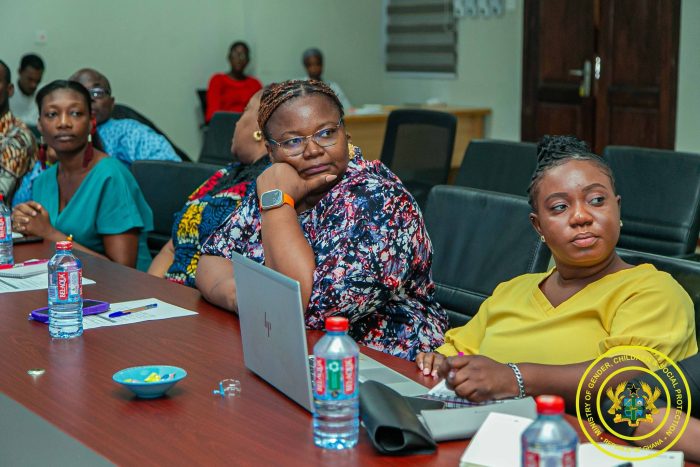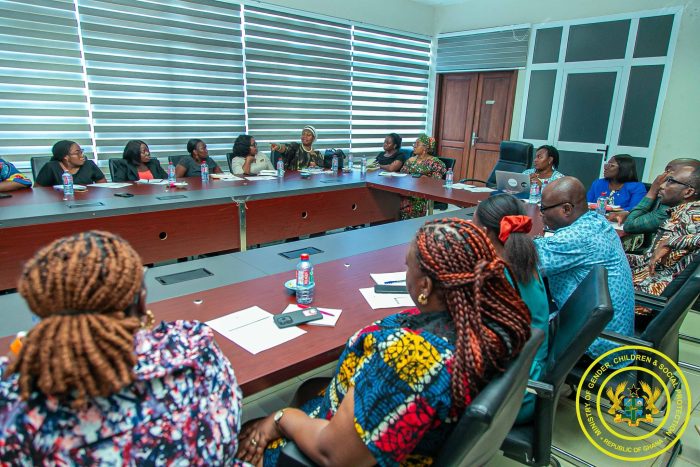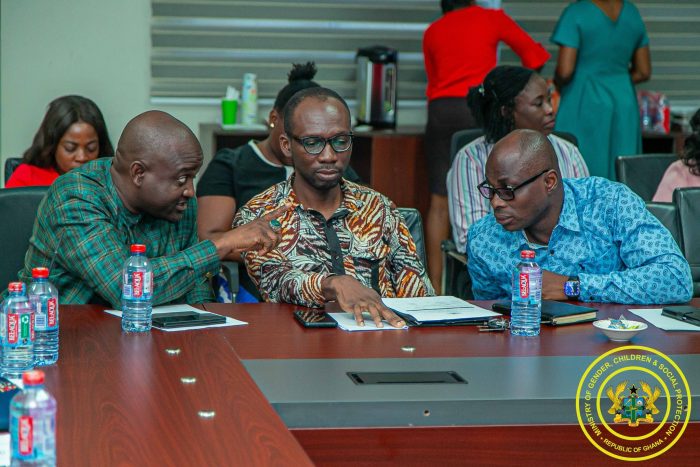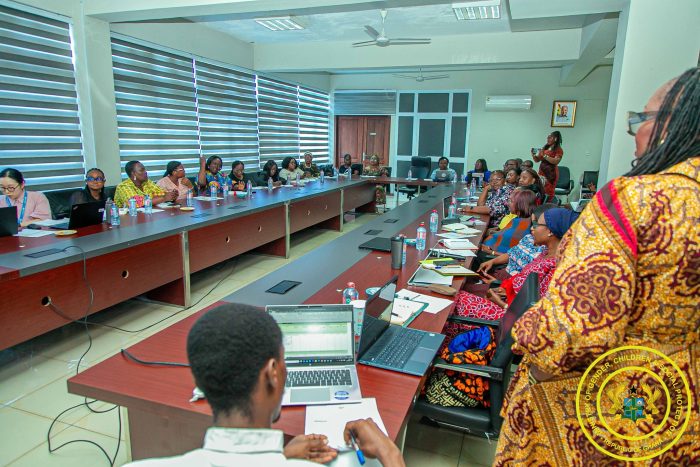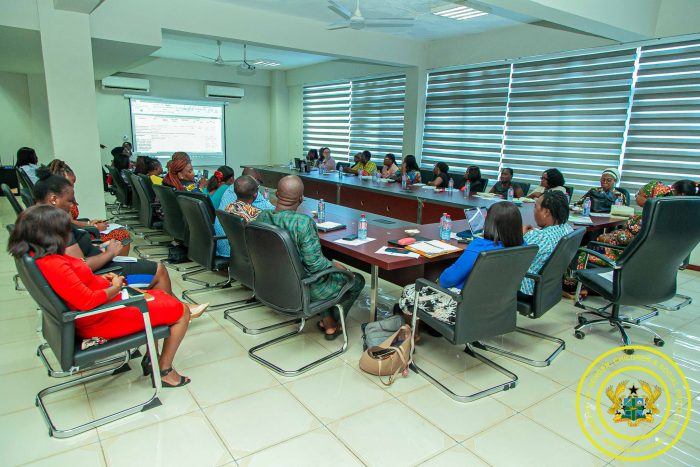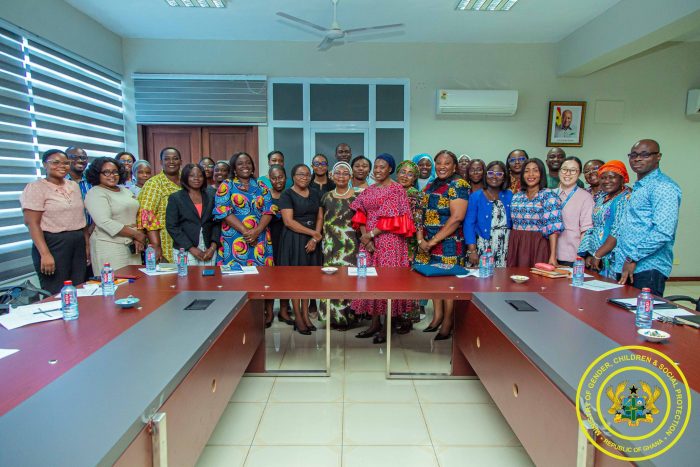CONSULTATIVE AND VALIDATION MEETING ON THE NATIONAL OPERATIONAL MONITORING AND EVALUATION PLAN FOR ENDING CHILD MARRIAGE (2025–2026)
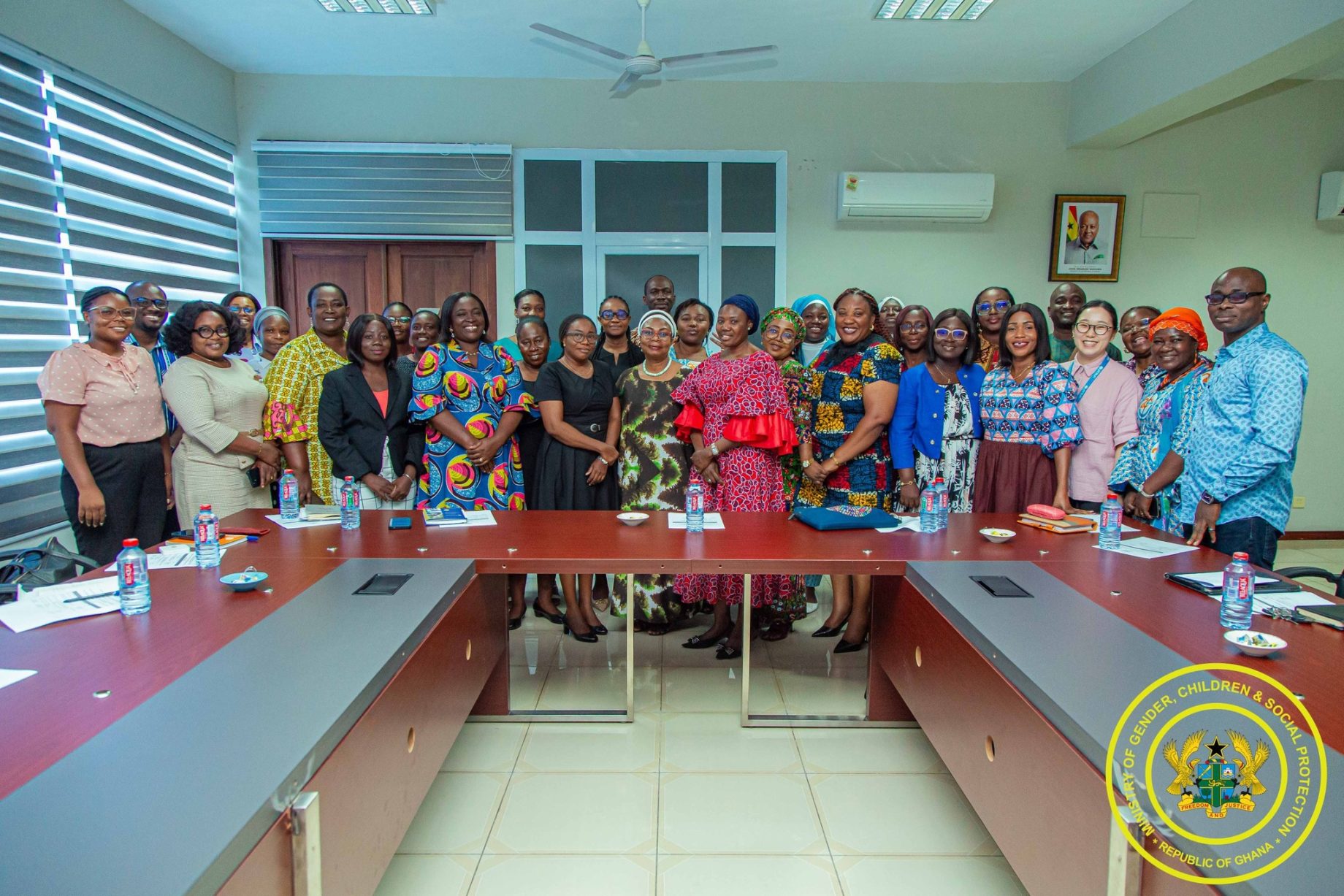
June 16, 2025 11:26 am
The Child Marriage Unit of the Ministry of Gender, Children and Social Protection, in collaboration with UNFPA Ghana and UNICEF Ghana, held a one-day meeting to review and finalize the National Operational Monitoring and Evaluation (M&E) Plan for Ending Child Marriage (2025–2026).
The objectives of the meeting were to:
Review and confirm baseline data and targets for 2023–2024 with institutional representatives;
Present proposed targets for 2025–2026 to stakeholders for validation;
Strengthen collaboration with key stakeholders and partners.
Delivering remarks on behalf of the Chief Director of the Ministry, Dr. Afisah Zakariah, the Head of the Child Marriage Unit, Madam Safia Tamimu, emphasized that the updated Operational M&E Plan represents a collective commitment to ending child marriage and protecting the rights and future of every Ghanaian child—especially girls, who are disproportionately affected by this harmful practice.
She noted that despite some progress over the years, child marriage remains a persistent challenge in many communities across the country.
She stated that “one in six girls is still married or in a union before turning 18. That is too many. Girls in rural areas and low-income households remain particularly vulnerable.”
Madam Tamimu further stressed that updating and reviewing the Operational M&E Plan is a cornerstone strategy toward eliminating child marriage by 2030, in alignment with Sustainable Development Goal (SDG) target 5.3.
She expressed gratitude to UNFPA and UNICEF Ghana for their immense support and urged all stakeholders to reinforce coordination and renew their shared commitment to ensure that no child in Ghana is forced into early marriage.
In a joint solidarity message, Madam Doris Mawusi Aglobitse of UNFPA and representatives from UNICEF Ghana underscored that child marriage is not only a violation of human rights but also a significant barrier to national development, gender equality, and the full realization of girls’ potential. They reiterated that ending this harmful practice is not optional but necessary.
Both agencies reaffirmed their commitment to working alongside the Government, the Ministry, and the Child Marriage Unit to support the implementation of Ghana’s national strategy to end child marriage.
The National Operational Monitoring and Evaluation Plan was originally developed to guide government efforts in tracking the implementation of the National Strategic Framework on Ending Child Marriage in Ghana (2017–2026). The Child Marriage Unit remains responsible for coordinating the implementation of all related activities.
During the meeting, a presentation was made on the final draft of the 2025–2026 Operational M&E Plan.
Participants engaged in robust discussions and offered valuable suggestions, particularly on refining indicators to ensure data is disaggregated by age, sex, location, and other relevant variables.
Source: MoGCSP
